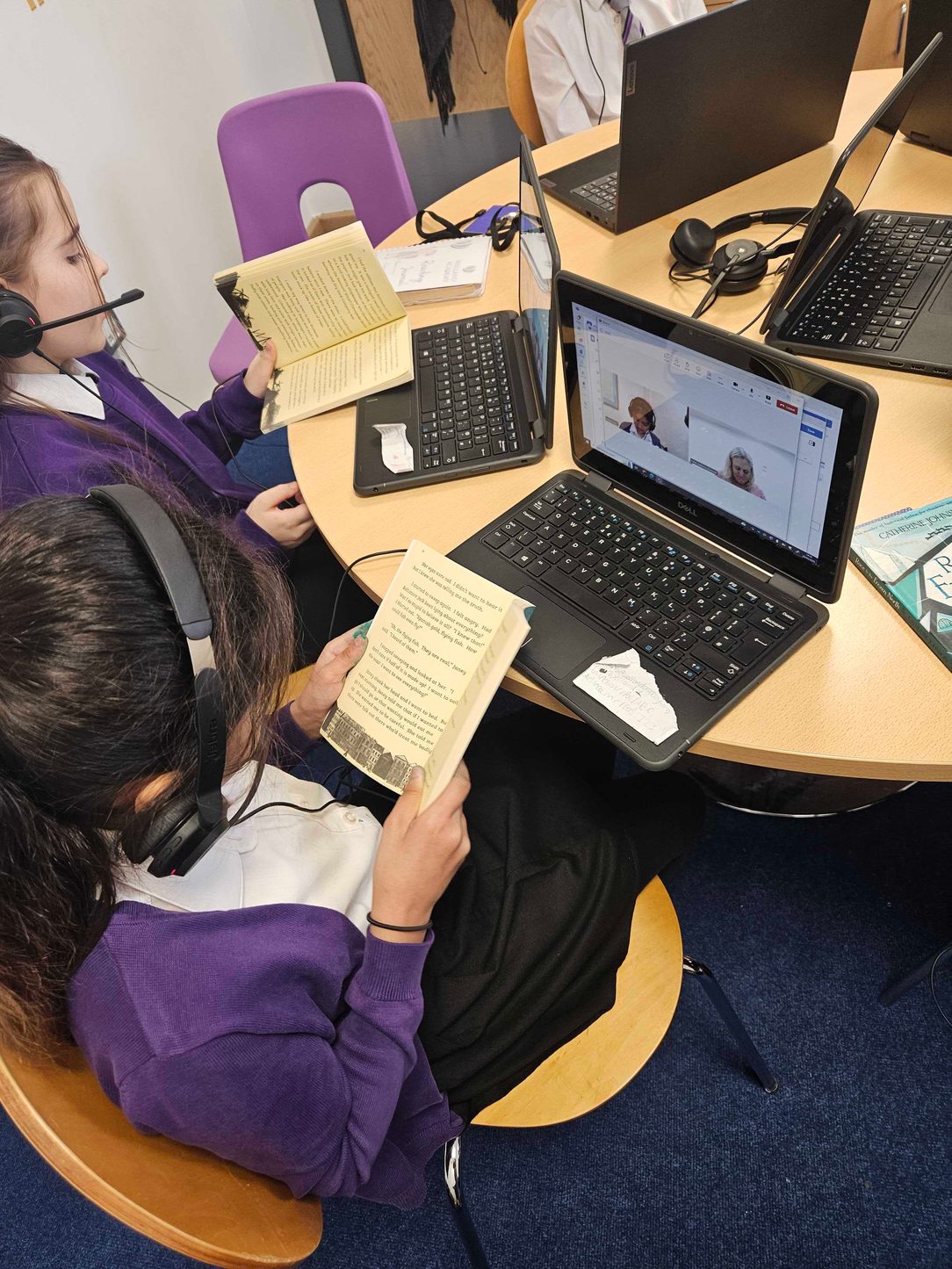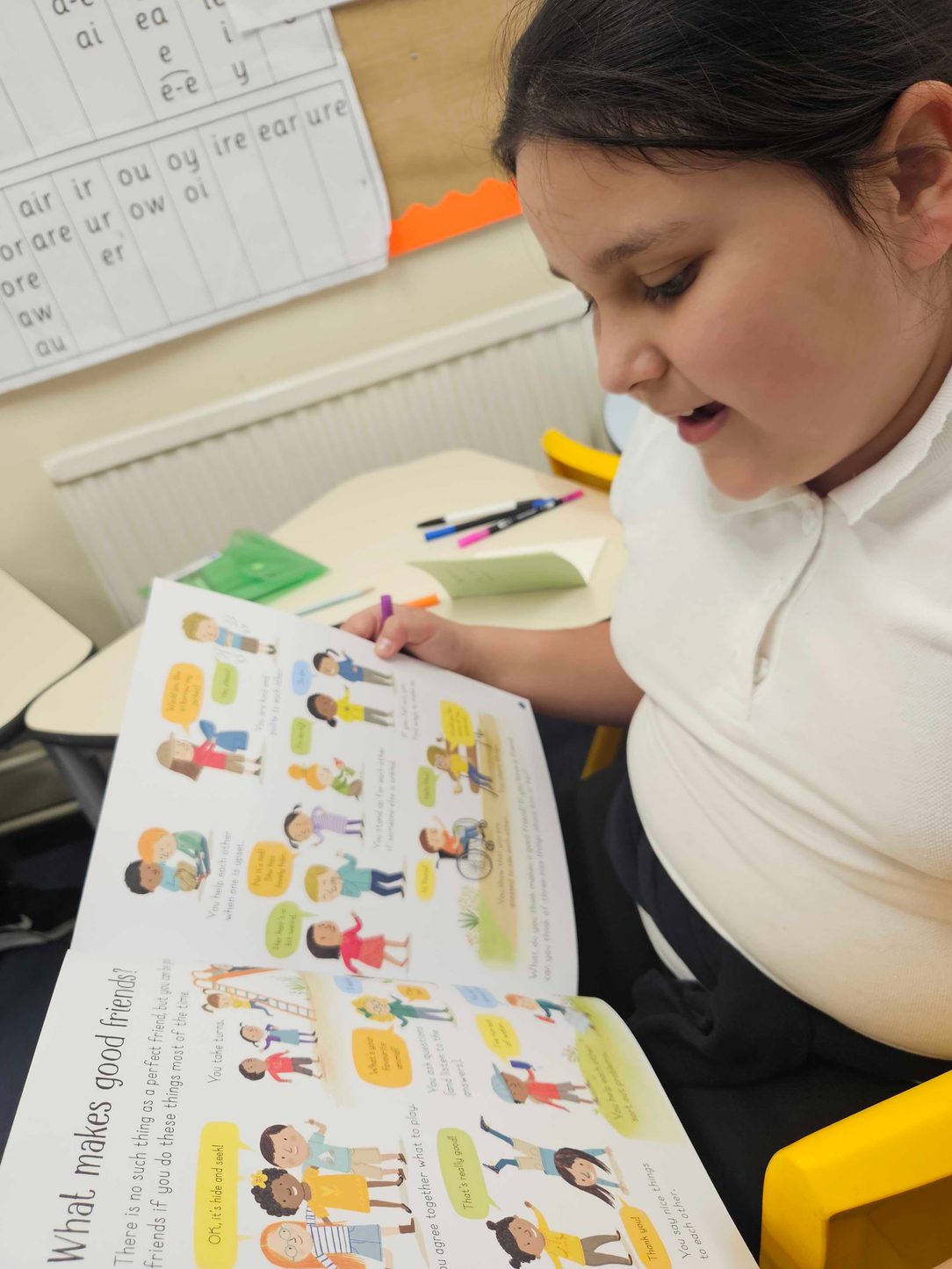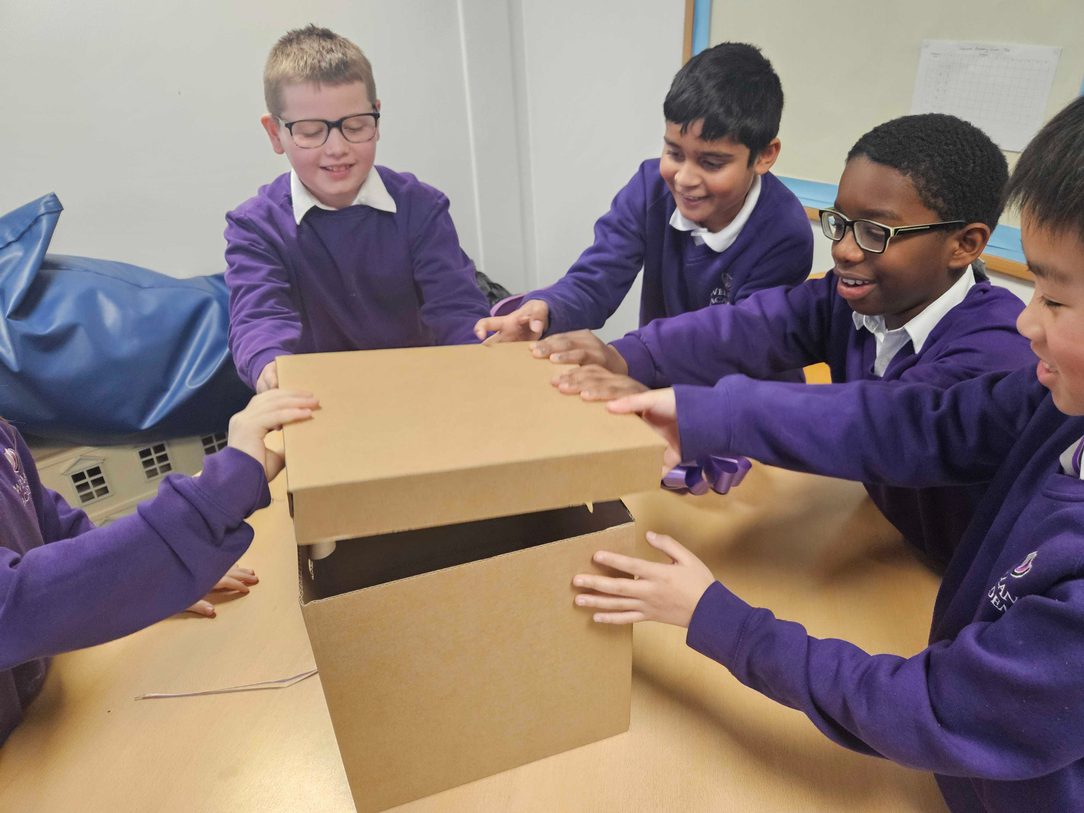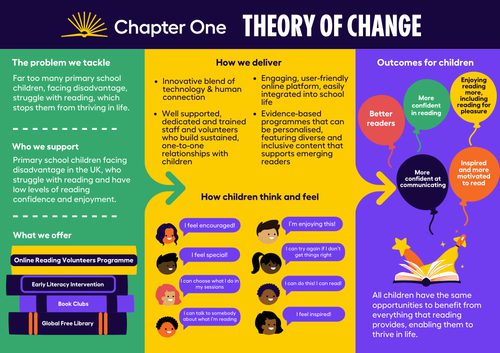27 August 2025
Reaching reluctant readers: Our Book Club pilot improves attitudes to reading
Pilot project shows how targeted support for older children is reigniting their love of reading
Share this page

For many children, the transition from learning to read to reading for pleasure doesn't happen naturally. By ages 8-10, some capable readers have already decided that books aren't for them.
From January-May 2025, we tackled this challenge head-on through our Key Stage 2 Book Club pilot. Working across four primary schools – two in London and two in Peterborough – we created informal, relaxed spaces where 48 reluctant readers from Years 4 and 5 could rediscover why reading is fun. We’re grateful that the Sodexo Stop Hunger Foundation, a Chapter One Platinum Partner, contributed £10,000 towards the pilot, amongst other funders, including The Hargreaves Foundation.
Led by trained reading facilitators, each weekly 30-minute Book Club session focused on choice, discussion and building positive reading identities. Children could explore curated ‘book boxes’ and borrow stories and non-fiction texts based on their own interests; those in Peterborough also connected with corporate volunteers online every other week for one-to-one conversations about their reading.
Importantly, to provide training to our reading facilitators, and to evaluate the Book Club, we partnered with The Open University Reading for Pleasure team. And the independent evaluation results showed our targeted approach is working. After ten weeks of Book Club we saw that:
Children enjoying reading increased by 19 percentage points (from 38% to 57%)
Those children reading 2-3 times per week or more rose by 15 percentage points (from 70% to 85%)
Children viewing themselves as good readers increased by 27 percentage points (from 48% to 75%)

The power of choice
This older age group faces unique challenges. Unlike younger children who are still mastering the mechanics of reading, these 8-10 year olds need something different – they need to rediscover why reading can be enjoyable, without the pressure of formal assessment.
At the heart of each Book Club was our 'book box' – a collection of diverse stories and texts, often linked thematically, that children could browse and borrow according to their interests. The Book Clubs worked because they gave reluctant readers something they rarely get in school: the power to choose. In these supportive groups, children could explore stories at their own pace, share their thoughts, likes and dislikes openly, and see that their opinions about books mattered.

I like that we get to pick what we want. It's not like class where the teacher picks for you.
Year 5 pupil
Teachers also witnessed this transformation extending beyond the Book Club sessions. "He now picks books off the shelf without prompting. That's huge," shared one Year 4 teacher about a pupil who had never previously volunteered to read aloud. The enthusiasm was infectious: "They love it – they're so excited to go. Some of them even remind me in the morning, 'Don't forget, we've got book club today!'
The children themselves captured the change in their attitudes best. "I used to hate reading, but the club makes it fun," explained one Year 5 pupil. Another reflected: "It's actually made me like reading a bit more than before. I used to just play on my Xbox."
As the DfE Reading Framework notes, well-planned book clubs “provide a supportive forum in which children can express opinions, listen to others, and deepen their understanding of texts.” Our pilot proved this approach works, particularly for children who might otherwise slip through the cracks.
Expanding our reach
These results show the potential for targeted intervention with older, reluctant readers. For 2025-26, we're scaling up significantly, planning 32 Book Clubs reaching approximately 160 children across London, Birmingham and Doncaster.
We'll continue partnering with schools that already deliver our Online Reading Volunteers Programme, creating a comprehensive reading support pathway from early years through to Key Stage 2. This means we can provide the right intervention at the right time, helping more children develop both the skills and the love of reading they need to thrive.
The window for inspiring reluctant readers may be narrow, but our Book Club pilot shows it's never too late to help a child rediscover the joy of reading.
—
Chapter One's Book Club pilot was delivered in partnership with Brecknock Primary School (Camden), Torriano Primary School (Camden), Lime Academy Parnwell (Peterborough) and Welland Academy (Peterborough). All participating schools serve disadvantaged communities and already work with Chapter One to deliver our Online Reading Volunteers Programme.





